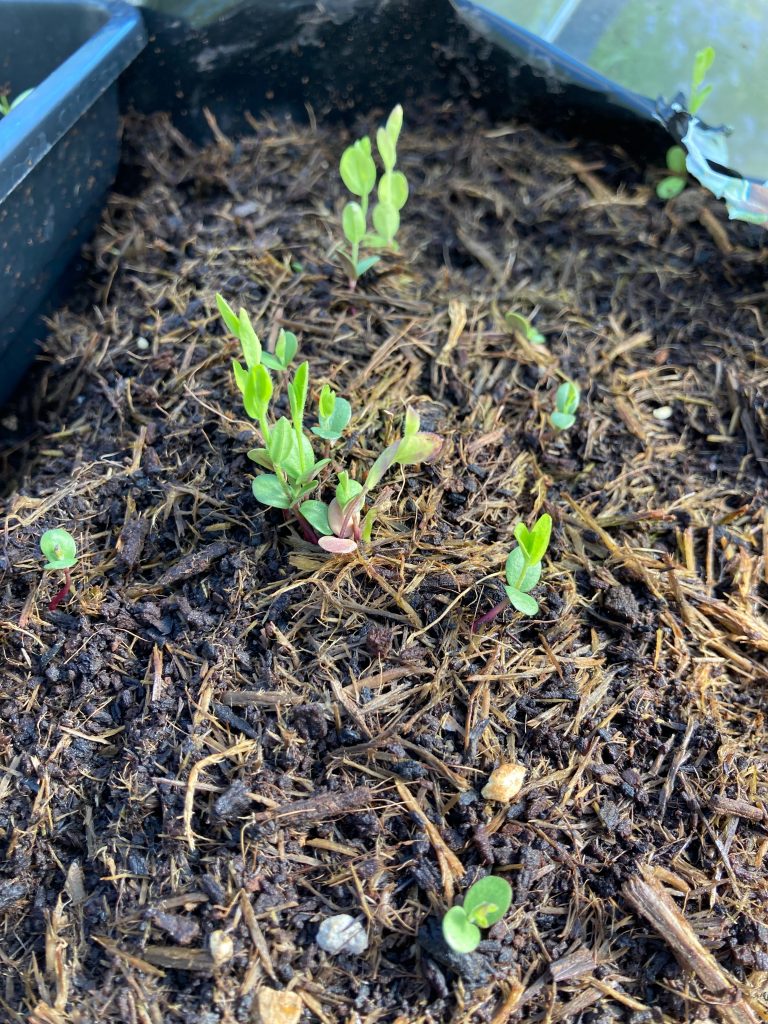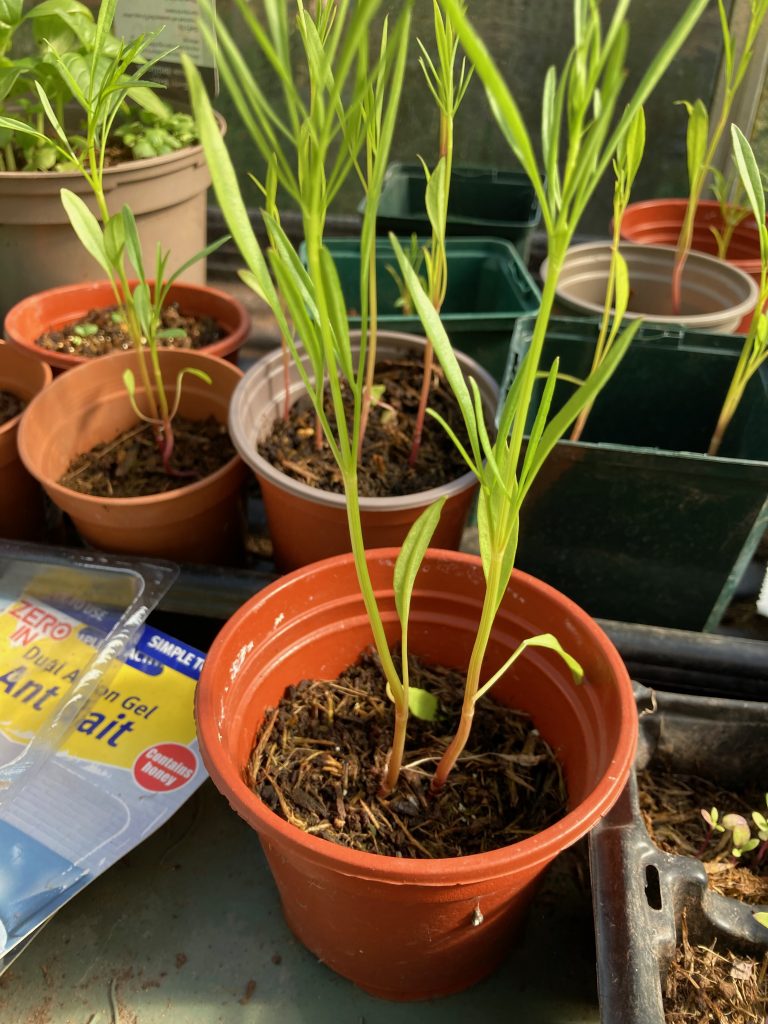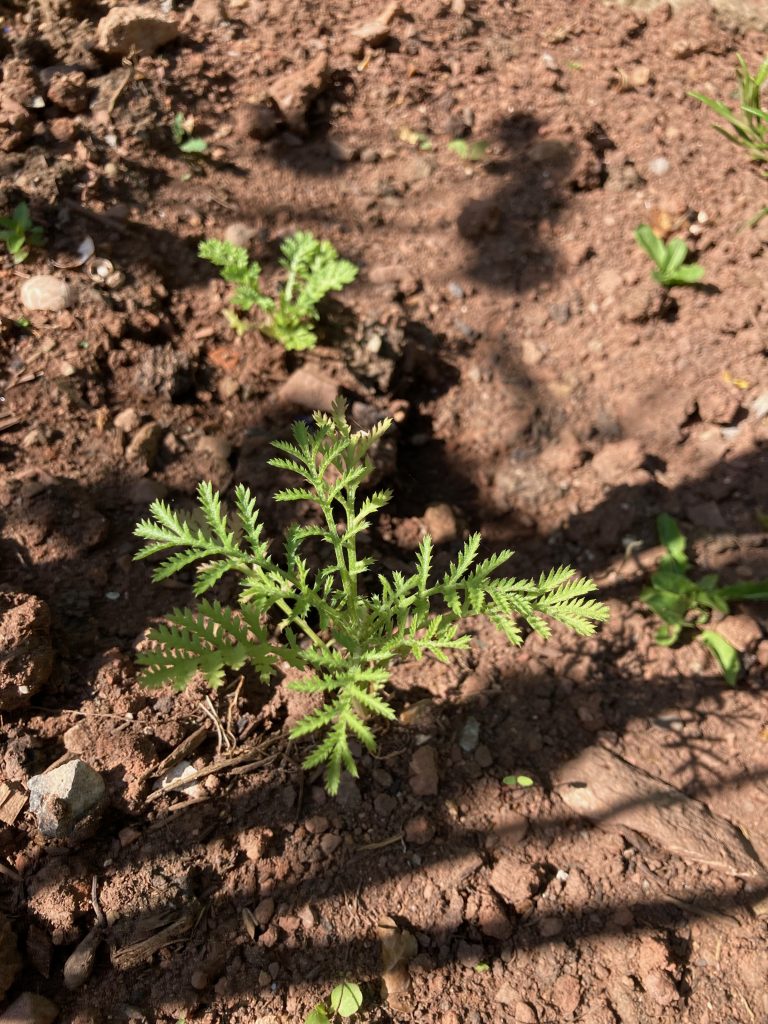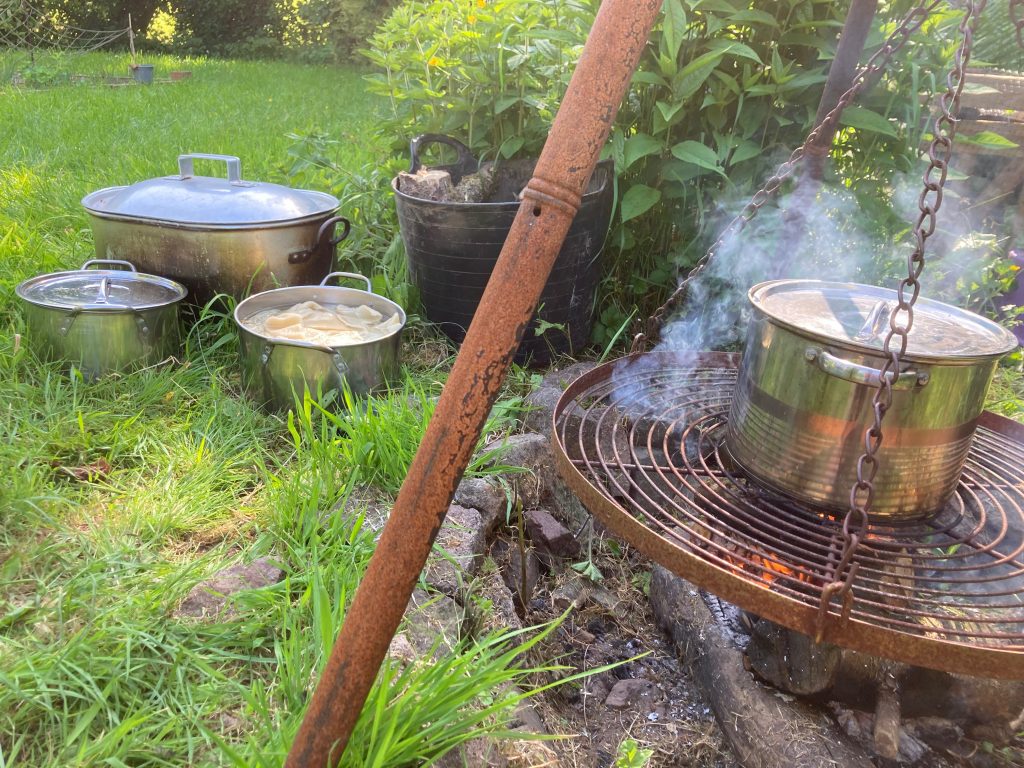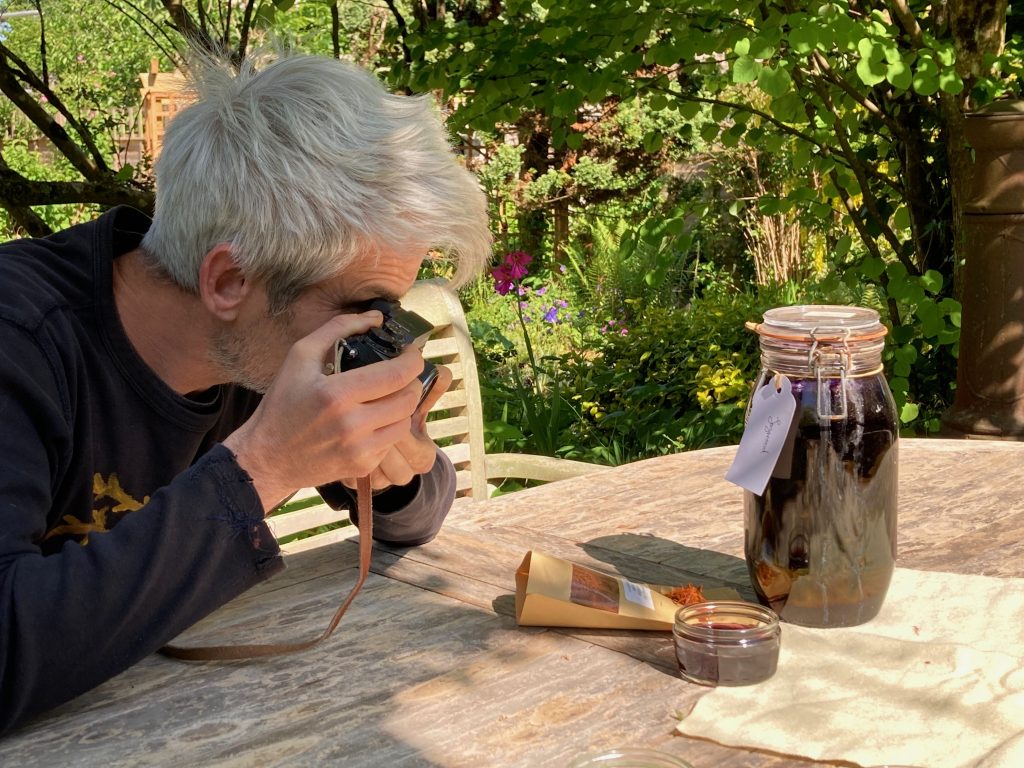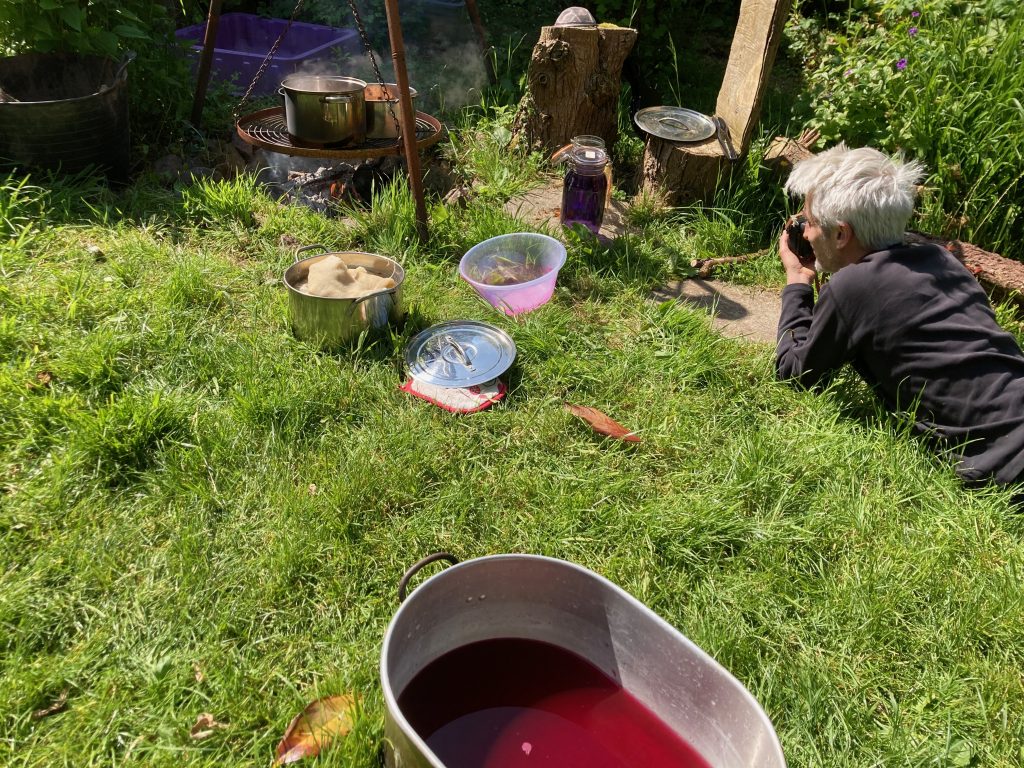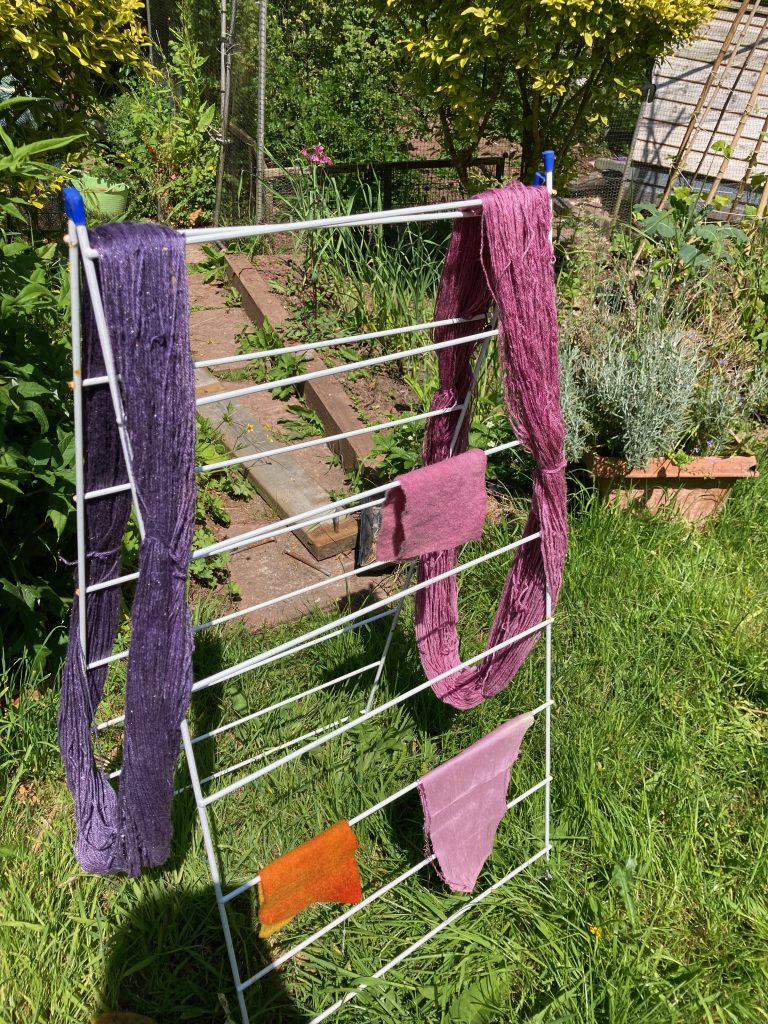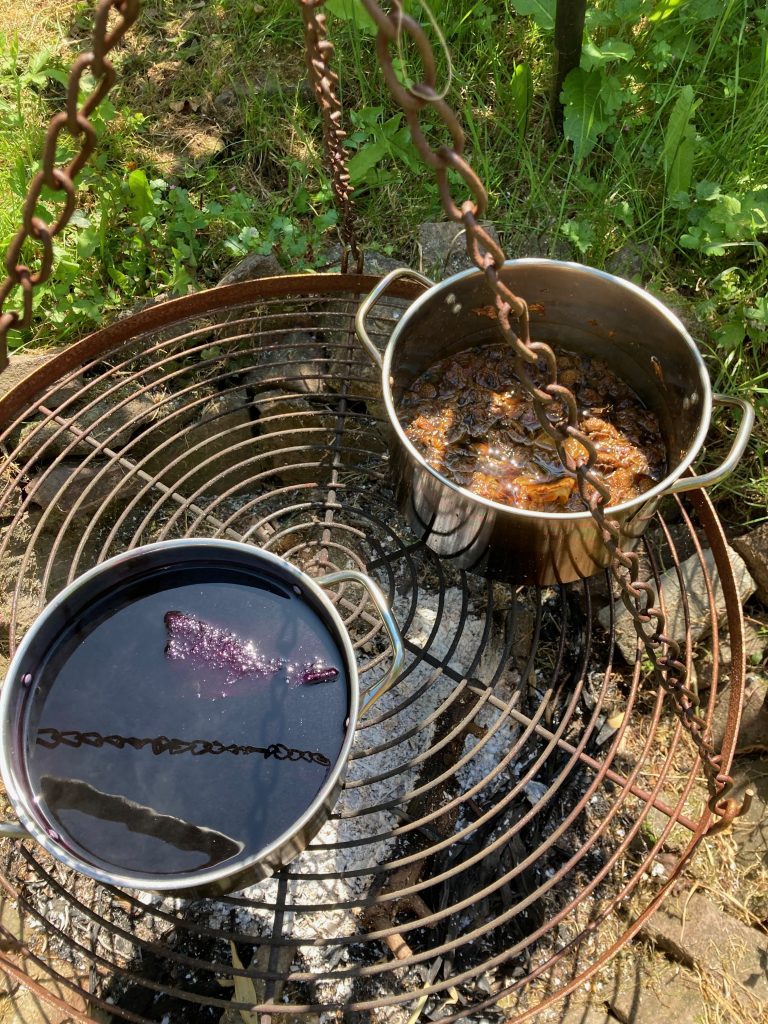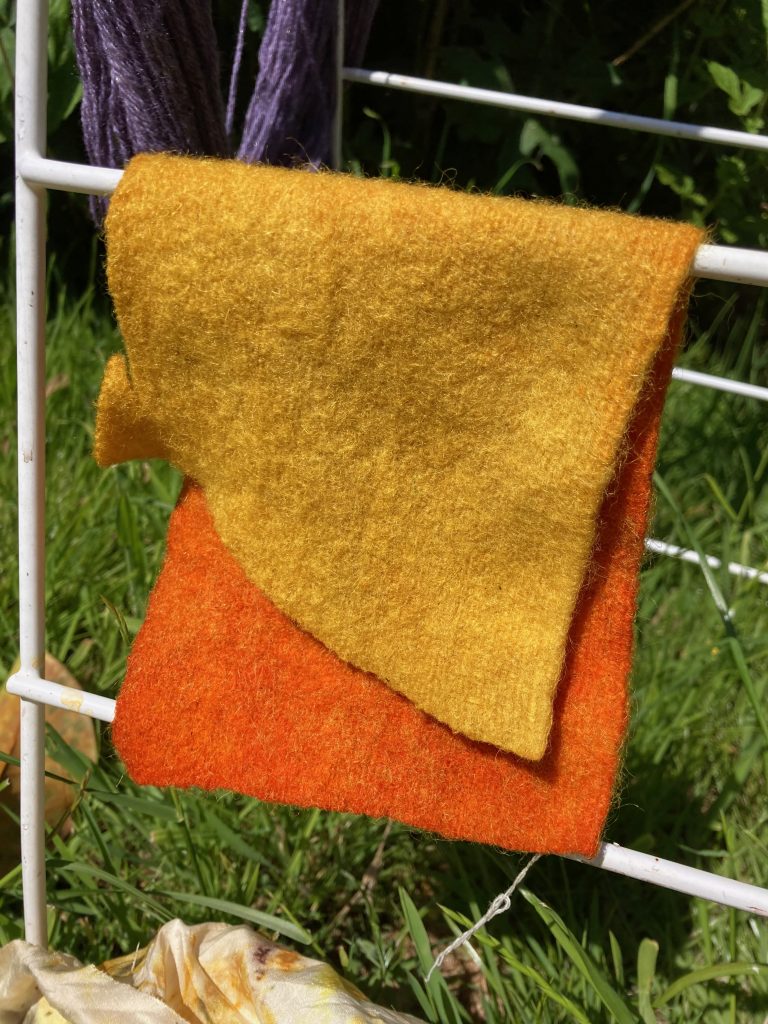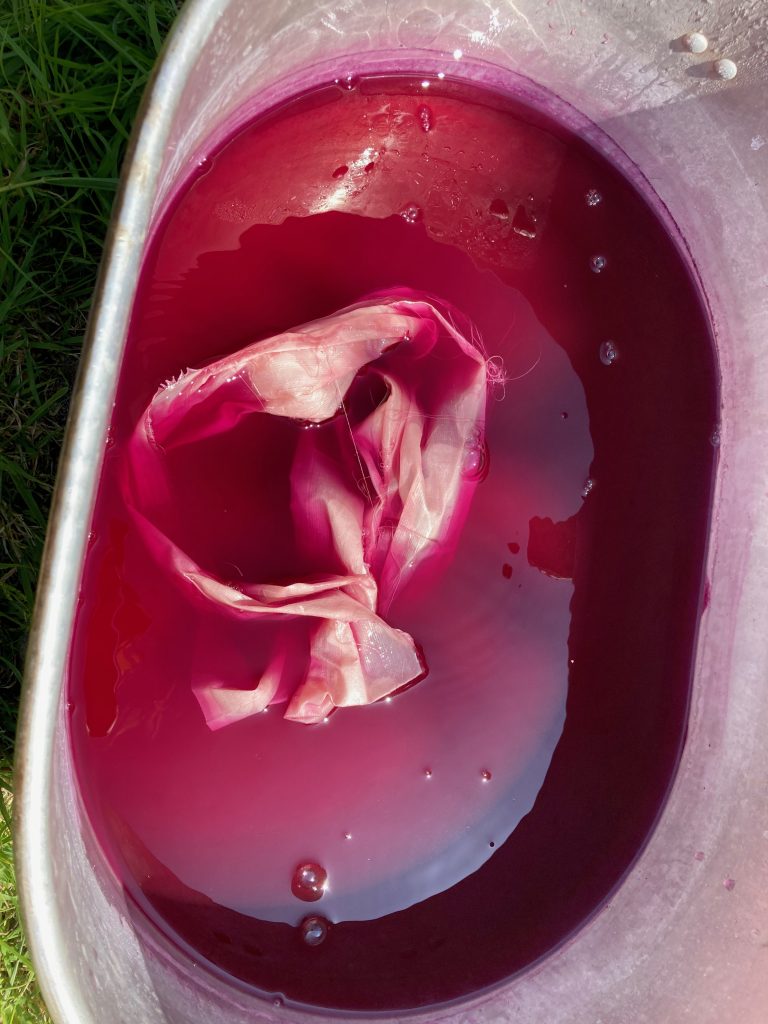
Telling a Tale of Colour
Artwork Exeter with associate artists Volkhardt Muller and Paula Crutchlow from Blind Ditch are currently putting together an exhibition inspired by the Exeter Toll Table of 1829 at the Customs House on Exeter Quayside. As an object the Toll Table indexes a lot about how Devonians lived around 200 years ago- and what was culturally valued through lists of things we imported and exported and tariffs that applied. Now called eco-dyes, logwood, cochineal, and dyebarks, were exciting and valuable imports. The mordant (fixative) Allum (aka Alum) was responsible for the wealth of the Medici clan and had a defining role in medieval geopolitics.
Our artistic director, Catherine West, has been exploring eco dyes for a number of years. For her, like the under-appreciated insight and understanding of unpaid carers and people with lived experiences of trauma, the tale of colour over the last 200 years is a story of ‘lost knowledge’ because of what we have socially valued at a particular time.
As we grapple with climate change, scientists, artisans and artists are trying to recreate the knowledge that was major currency of the Middle Ages: the alchemy of colour from plants and natural sources. Now, the textile industry contributes roughly 10% of global emissions, and has further substantial ill-effects on water ways, including due to the manufacture of colour. In 1829, we were just decades away from the advent of the manmade dyes that now wreak such damage.
Volkhardt Muller, from Blind Ditch and Artwork Exeter, recently came to visit the Significant Seams fire pit to learn more about eco-dyes and why he’d struggled to find a dye works today. An artist himself, the conversation inevitably turned to why Catherine has found eco-dyes so allegorical and central to her practice.
Artwork’s telling of the tale of the Toll Table, and in part, a tale of colour, featuring an interview with Catherine West as a representative ‘dyer’, will open at Exeter Customs House on 13 June 2023 and run til 9th July 2023.
